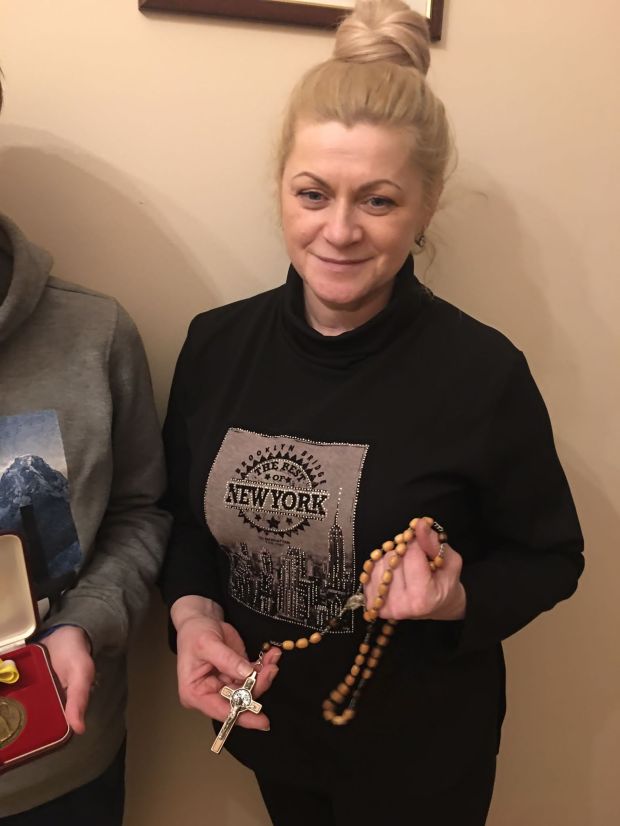Lenten Campaign 2025
This content is free of charge, as are all our articles.
Support us with a donation that is tax-deductible and enable us to continue to reach millions of readers.
I’m traveling with Fr. Jonathan Kalisch, chaplain of the Knights of Columbus. Like me, Fr. Jonathan is a Dominican priest. As our trip developed, we thought it would be best to arrive in Warsaw. We had hoped to stay with our Dominican brothers in Freta, the Polish Dominican provincial headquarters in Warsaw. However, we had to make other arrangements, since our brothers had already given all available rooms to Ukrainian refugees!
The Dominicans have been very active in Ukraine for centuries. In fact, 800 years ago this year, St. Hyacinth (“Jacek” in Polish) who founded the Dominican Order in Poland, established the first Dominican convent in Ukraine. As of this writing there are 15 Dominican friars still active in Ukraine, working to help their people.
We managed to find rooms with the Redemptorists, at St. Clement Parish, which is the home of Warsaw’s Knights of Columbus. The parish is located in what was once Warsaw’s Jewish ghetto. The neighborhood’s new construction is a constant reminder of the evil Poland suffered in the 20th century.
As the pastor was showing us to our rooms, we met several Ukrainian refugees, who are staying here in the Redemptorist community. This community is now hosting three families indefinitely. The priests have worked to find places in schools for the children and jobs for the mothers. Just little things. One has found temporary work at a pharmacy, cleaning and reorganizing. Others are helping out around the community house and parish.
The superior of the community, Fr. Jacek, shared a few extraordinary details about one of the women staying here. Natalia and her teenage son walked for three days (without sleeping) to reach the Polish-Ukrainian border. They arrived, with just one bag each.
Shortly after their arrival, Natalia said she wanted to show something to Fr. Jacek. She took him to her room and revealed to him the main contents of her one suitcase. She had chosen among her few possessions to keep a blessed papal medal (a medallion really which had belonged to her grandfather), a rosary, and a gold-plated crucifix.

The gilded crucifix was heavy, no easy burden to carry anywhere. Let alone the over 50 kilometers she and her son walked. As she fled her homeland, these were the possessions she chose to keep. Natalia literally carried her cross.

